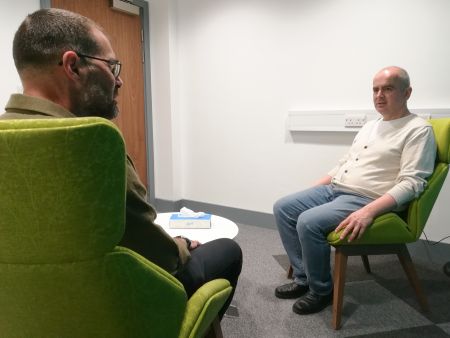
Salford and partners launch £6m cyber security scheme
Monday 10 September 2018
UNIVERSITIES across the North West are joining forces to combat cyber security with a new £6m scheme.
The GM Cyber Foundry is part of the city-region’s blueprint to be the European leader in digital which also sees GCHQ moving operations to Manchester.
The initiative will apply research in cyber security to create new products and services for small and medium sized businesses (SMEs).
Computer scientists and other experts will be involved from Lancaster, Manchester Metropolitan, Salford and Manchester.
European funding
The Ministry of Housing, Communities and Local Government has allocated £3m of European Regional Development Fund (ERDF) funding to the scheme.

Manchester Metropolitan vice chancellor Professor Malcolm Press said: “The GM Cyber Foundry will play a key role in protecting the region’s businesses, and preparing them for future digital challenges.
"Universities have an important part to play in ensuring SMEs can thrive by transferring cutting-edge technology, research and bespoke products directly to those who need it.”
According to the Lloyds City Risk Register cyber attacks pose a £860m risk to the region's businesses each year. And last year’s WannaCry ransomware virus demonstrated the potentially catastrophic impact caused when cyber defences are breached.
'World-leading'
Mayor of Greater Manchester, Andy Burnham, said: “Through the work of the Cyber Foundry, our world-leading universities are giving start-ups and SMEs the freedom they need to create and innovate, but within digital environments that are safe and secure from cyber criminals.
“With over £25m being invested in fibre broadband connectivity, a planned £5m Cyber Innovation Centre, and the new GCHQ site, Greater Manchester is both a major hub for digital development and research, and a trusted place to do business.”
A selection of projects include improving cyber security in blockchain and Internet of Things applications, increasing encryption efficiency and improving the design of security systems to help users.
Dr Rob Aspin, director of Computer Science and Software Engineering at Salford said: “This is a landmark project which builds on our reputation of working directly with business organisations on real-world problems.
Pool of experts
The collaboration between the four universities crucially provides a pool of expertise to build better protection for our industries and services."
The Salford team bring particular expertise in core cyber security, penetration testing, data science and data visualisation. The team will involve computer scientists Dr Aspin, Dr Tooska Dargahi and Dr Judita Preiss, business academics Dr Marie Griffiths and Dr Yun Chen and security and intelligence lecturers Dr Dan Lomas and Dr Chris Murphy.
The project, which starts on October 1, will recruit several new researchers and a number of business development managers.
Find out more
Gareth Hollyman, Senior Press & PR Officer (Science)
0161 295 6895 g.b.hollyman@salford.ac.uk





